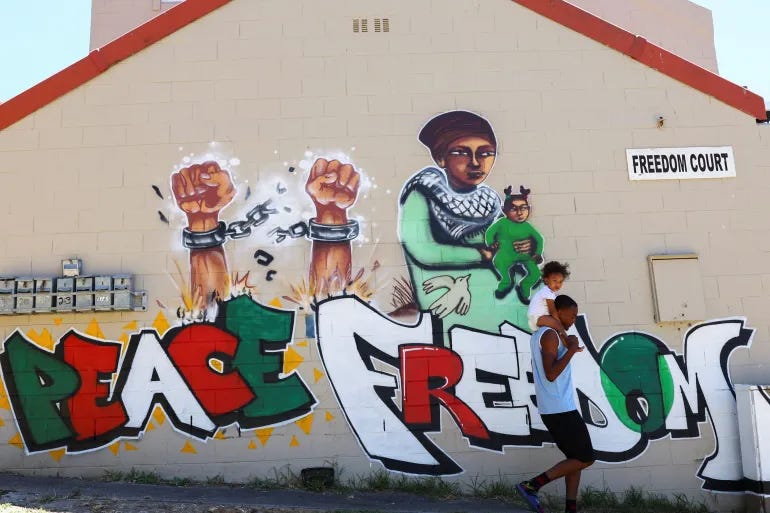Misplaced Whataboutery in African Debates on Solidarity with Gaza
Advocating for African conflicts should not come at the cost of standing with Gaza—both causes require nuanced engagement.
In August 2023, I assumed the role of director at the Centre for African Studies (CAS) at the University of Cape Town. One of my responsibilities was overseeing the launch of the African Humanities Association (AHA) in December—a significant milestone in advancing African scholarship, following in the footsteps of institutions like the Council for the Development of Social Science Research in Africa (CODESRIA).
However, the launch coincided with global outrage over Israel’s bombardment of Gaza following the October 7 Hamas attack. Amid the destruction of educational institutions and the killing of scholars, a senior AHA committee member proposed a motion to express solidarity with Palestinian academics.
The proposal, however, met resistance. Some argued it was too divisive for a fledgling association, while others questioned why Gaza should receive special attention when conflicts in Africa—such as those in the Democratic Republic of the Congo (DRC), Sudan, and northern Mozambique—remained largely overlooked. This argument, often framed as "whataboutism," suggested that prioritizing Gaza over African crises reinforced racialized biases that devalue African lives.
The Limits of Whataboutery
While concerns about African conflicts being overshadowed are valid, equating Gaza’s struggle with Africa’s internal conflicts risks oversimplification. Palestinians are engaged in an anticolonial resistance against a settler-colonial state—an experience that resonates with African history. Meanwhile, conflicts in Sudan and the DRC stem from unresolved postcolonial struggles over identity, governance, and resource control. These distinct historical trajectories require different frameworks for action.
Some solidarity movements have sought to address this concern by incorporating African conflicts into their messaging—using slogans like "Free Congo, Free Sudan, Free Palestine." While well-intentioned, this approach can blur the unique political contexts of each crisis. Anticolonial resistance, such as in Gaza, demands one form of solidarity, while postcolonial conflicts necessitate deeper engagement in historical complexities and advocacy for structural change.
Moving Beyond Symbolic Solidarity
The challenge for African scholars is to ensure that African conflicts receive global attention without reducing solidarity to a zero-sum game. While standing with Palestine aligns with historical anticolonial struggles, addressing Africa’s crises requires rigorous research, policy engagement, and decolonial approaches to governance.
As Frantz Fanon warned, many anticolonial movements failed to fully decolonize their societies after independence. Today, African intellectuals must not only express solidarity but also critically engage with the structural issues sustaining conflicts on the continent. Instead of debating whom to stand with, the focus should be on how to effectively advocate for both African and Palestinian struggles within their respective historical and political realities.


